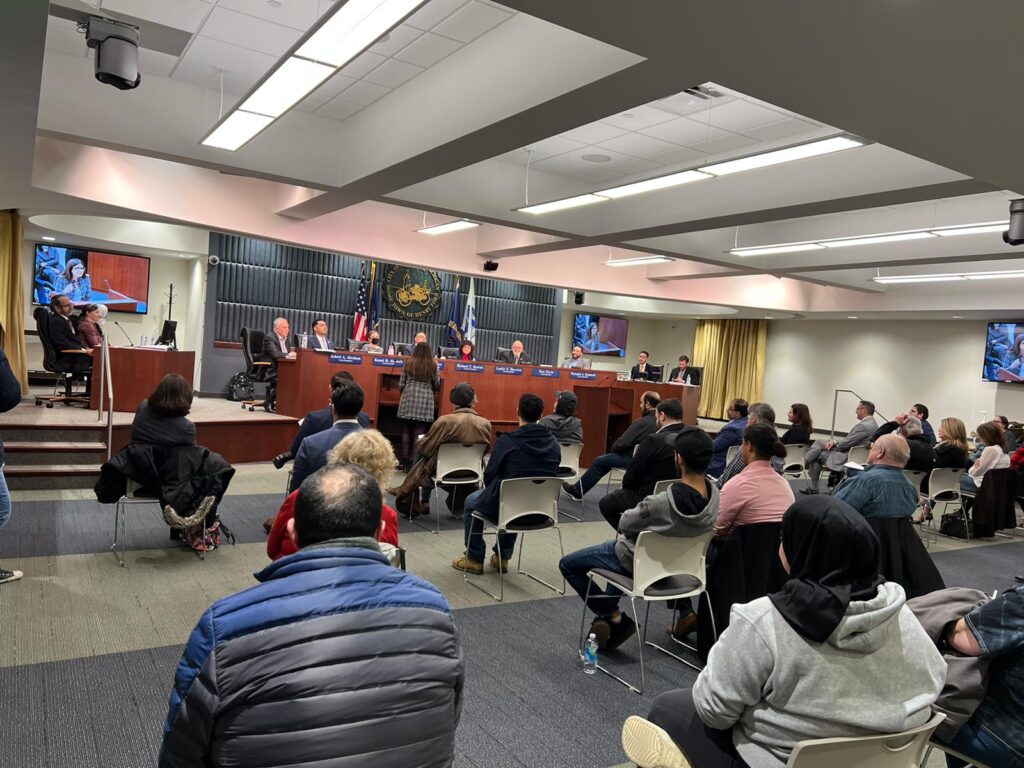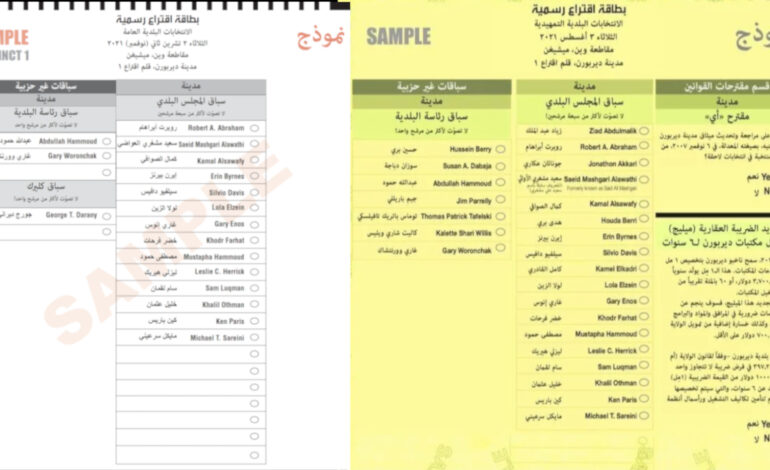DEARBORN — An effort to bring federally guaranteed language access to Dearborn’s multilingual population continues to see resistance.
Last week, the Dearborn City Council passed a resolution, brought forth by Councilman Mustapha Hammoud, that sought to ensure ballots and other election materials would be translated into multiple languages.
That resolution sought to bring much needed basic U.S. Voting Rights Act (VRA) provisions around language to Dearborn voters.
The VRA dictates that translated materials be provided to any group that is 5 percent or more of the population or 10,000 or more people.
Two provisions in the VRA require local governments to provide translated election materials.
“A jurisdiction covered by either provision must provide all materials related to an election — such as voter registration materials, ballots, notices and instructions — in the language of any applicable language minority group residing in the jurisdiction,” the resolution read.
Historically, the decennial U.S. Census categorizes Arab American as “White.” The 2020 count did include a nationality option, but census experts have said that Arab Americans are expected to be continually coded as White in official counts.
But a five-year American Community Survey (ACS), run by the Census Bureau, gives a more accurate description of the language needs of the local community. The Bureau says language use, English-speaking ability and “data on limited English-speaking households are currently collected” in the ACS.
According to those numbers, some 46 percent or more of the city’s residents ages 5 and over speak Arabic at home and that out of the almost 40,000 Arabic speakers age 5 and above in Dearborn, about 24,000 speak English very well and about 16,600 did not speak English very well.
The Census Bureau says that one of the main purposes of collecting information on “languages is for Voting Rights determination.”
Arabic is a recognized language spoken at home by certain Americans, according to the Bureau.
But a letter from Wayne County Clerk Cathy Garrett to the Michigan Secretary of State (SOS) said last week, among other concerns, that a Census Bureau director issued notice in late 2021 “does not provide for minority language assistance in the city of Dearborn, nor does it determine a specific language or dialect.”
The SOS responded to that letter by saying that the law does not prevent jurisdictions from translating ballots to other languages, even if a lower percentage of the population speaks that language or if the language is not specifically covered by the Voting Rights Act.
“Similarly, the Michigan Election Law does not prohibit printing ballots in other languages in addition to English,” said the SOS in a letter to Garrett. “If the city of Dearborn and Wayne County seek to expand voting access among the more than 50 percent of Dearborn residents who speak Arabic, they have authority to do so under the same provisions of the Michigan Election Law governing the general printing of ballots.”
The letter says Dearborn’s government plans to pay the cost of the translations project and points out that the procedure the County Clerk’s office has in place providing Bengali ballots in Hamtramck can likely be replicated for Dearborn.
The SOS makes final determinations on voting procedures for elections, whether local or federal. Dearborn has translated sample ballots for elections for the past two years.

Dearborn City Council meeting, March 22. Photo: The Arab American News
Additional accessibility
A spokesperson for the County Clerk told the Freep this week that “legalities for implementation (of the language access resolution) are being identified.”
The resolution passed by the City Council directs the City Clerk to implement the translation of election materials in the appropriate language — Arabic in this case — in time for the August primary election.
Clerk George Darany has raised issues with the resolution’s timeline, with an upcoming special election in the works, resources and funding. But both the city of Dearborn administration, local non-profits and the SOS has extended their help in several communications on the matter. The city is also committing to reserve funding for the project.
In communications to Council and Mayor Hammoud, Darany continued to challenge the resolution earlier this week, calling it the “Arabic Ballot resolution” and arguing that Arabic is not approved by the U.S. for what he calls “federal ballots.” Election procedures are entirely conducted at the state, county and local levels, whether those are presidential elections or ones for local school boards, for example.
In 2020, the SOS, through a special language access task force, aided in the translation of sample ballots for Dearborn voters and other communities, and then after community demands, those sample ballots were translated again by The Arab American News for the city last year.
The city’s legal department, and now SOS, has publicly said the translation effort is legal and entirely within the scope of the Clerk’s election services.
The resolution itself acknowledges that the VRA narrowly defines language minority groups as American Indian, Asian American, Alaskan Natives or of Spanish heritage, but that Dearborn is confident additional accessibility can be accomplished “effectively and at a reasonable cost.”
Moreover, the SOS in its response to the County Clerk said that federal and state law do not prevent Dearborn from covering other minority languages as well.
As in those earlier elections, the ballots are meant to be translated into standard Arabic, which is used for Arab print media and is widely read and understood across the Arab world, and its various nationalities and dialects, and various Arab populations living in Metro Detroit.






Leave a Reply